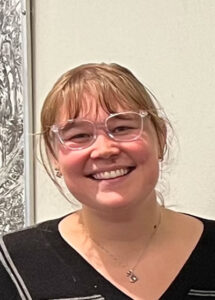 Thesis Topic
Thesis Topic
Stereolithography Printing Poly (lactic-co-glycolic acid) and Graphene Oxide Scaffolds to Treat Traumatic Brain Injuries
Thesis
Traumatic brain injuries (TBI) impact millions of people annually in the United States. The cascade of degenerative effects days to months after the initial impact result in significant cognitive symptoms and severe neurological disorders, often resulting in long-term disability. With no treatments available, researchers have focused on nerve tissue engineering to provide solutions to the challenges that TBIs present. This field focuses on biomaterial scaffolds and cellular therapies, often in combination, to repair functional neural tissue. The overall goal of this proposal is to use tissue engineering strategies to develop a neural scaffold optimized for TBI. Towards this goal, we propose a novel 3D printed construct composed of synthetic polymer, poly (lactic-co-glycolic acid) (PLGA), and carbon-based nanomaterial, graphene oxide (GO). These materials were chosen for their biocompatibility, biodegradability, and favorable physicochemical, mechanical, and conductive properties that provide optimal cellular interactions for functional neural growth. However, due to GO’s hydrophobic nature and its immiscibility in various organic solvents, a unique bioink development is required to allow for a successful printing strategy. To overcome this challenge, we will develop a PLGA/GO resin to be SLA printed, using a unique computer-aided design (CAD). Our scaffold will then be evaluated for its material characteristics and cytocompatibility through a series of standard material, cellular, and molecular assays. By the end of this proposal, we will have developed a novel bioink, successfully printed a neural scaffold optimal for TBIs, and answered the basic questions surrounding our constructs properties. The data obtained upon the completion of this study will be a significant step towards our goal of treating TBIs.
Biography
I am a PhD candidate in the Comparative and Experimental Medicine (CEM) program at University of Tennessee’s College of Veterinary Medicine, and a graduate research assistant in Madhu Dhar’s Tissue Engineering and Regenerative Medicine lab. My thesis focuses on using carbon-based nanomaterials to develop tissue engineering strategies for neural applications.